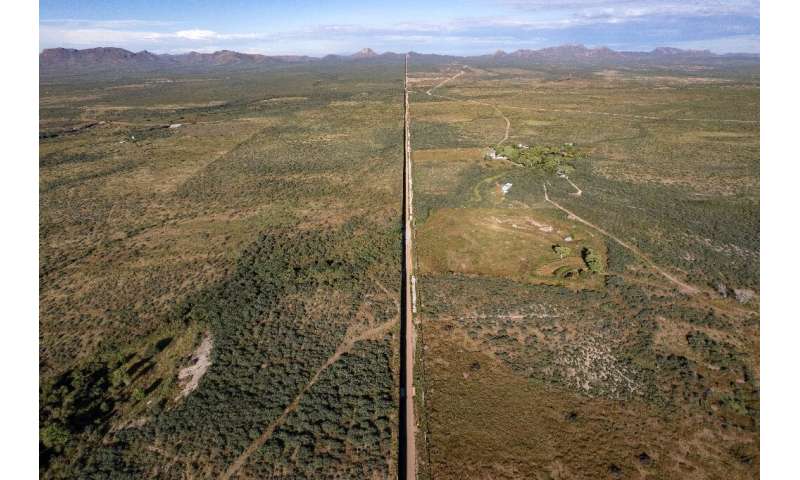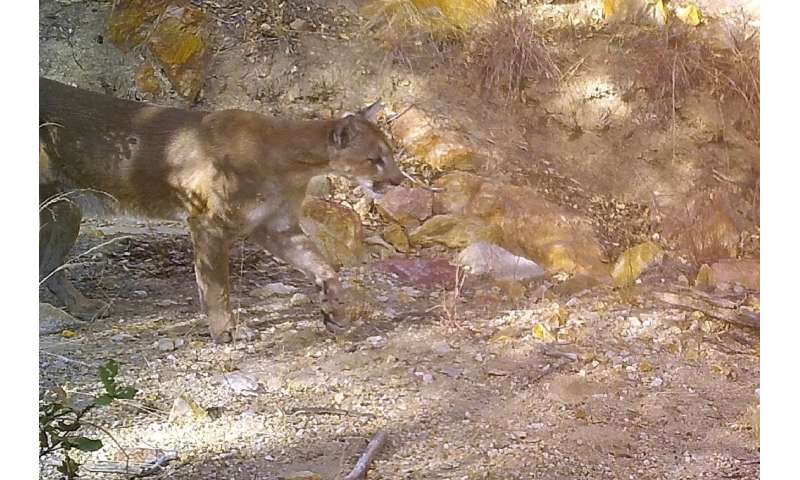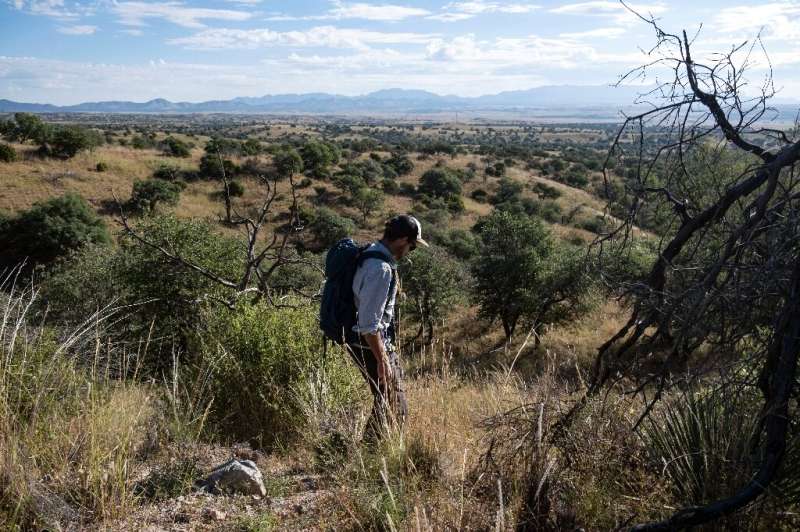The border wall snaking along the US-Mexican border was built to keep migrants out—but conservationists say the towering metal barrier also stops wildlife from moving between natural habitats.
Alarmed by the impact on animals including jaguars, bears and mountain lions, activists from the United States and Mexico have joined forces to try to protect the biodiversity corridor.
“This part of the border is one of the most interesting places in North America,” said Valer Clark, founder of the transfrontier wildlife organization Cuenca Los Ojos (CLO).
Bears, mountain lions, deer, bighorn sheep and coatimundis are among the animals roaming the arid lands of southern Arizona and the northern Mexican state of Sonora, she told AFP.
But camera trap photos and the conservationists’ own observations have revealed deer, mountain lions and black bears pacing along the border wall, confused and unable to access their former ranges, according to the group.
One family of boars spent five hours trying to get past the wall in search of water, said Jose Manuel Perez, CLO’s conservation director.
Border lighting meanwhile deters nocturnal animals and can cause migratory birds that navigate by moonlight or starlight to lose their way, environmentalists warned.

An aerial view of part of the US-Mexico border wall between Arizona and Mexico’s Sonora state. 
An image released by the Sky Island Alliance shows a mountain lion in the Patagonia Mountains of Arizona.
The wall was first erected by the United States in 1994 and underwent major reinforcements during Donald Trump’s 2017-2021 presidency.
The barrier, which stretches across almost all of Arizona’s southern edge, “greatly affects” the migration of animals, Perez said.
CLO is calling for the removal or modification of the parts of the border wall that cause the most harm to wildlife, and for the restoration of all cross-border rivers.
It is more than 40 years since Clark moved to a cattle ranch in southwestern Arizona, where the New Yorker said she fell in love with the wide open spaces.
Back then it was a totally different place, where people would cross the border easily to visit relatives, she recalled.

The region may look barren, but in fact “it’s full of important wildlife and diversity,” said Eamon Harrity, wildlife project manager at the Sky Island Alliance, another conservation group active in the area.
“The development of a large human barrier has repercussions,” he said.
Jaguars could return to the US Southwest—but only if they have pathways to move north
© 2022 AFP
Citation:
Protecting wildlife along the US-Mexico border (2022, October 14)
retrieved 14 October 2022
from https://phys.org/news/2022-10-wildlife-us-mexico-border.html
This document is subject to copyright. Apart from any fair dealing for the purpose of private study or research, no
part may be reproduced without the written permission. The content is provided for information purposes only.
Source link
Author





